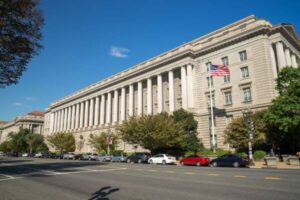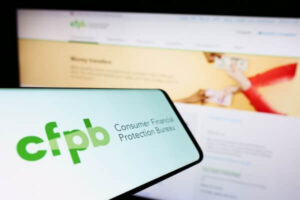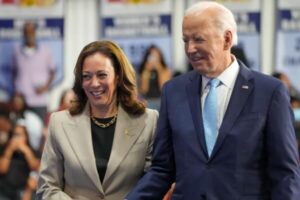The Latest Debt & Finance Blog
It’s tax season, but you wouldn’t know that by the tone of recent headlines about the IRS. So far this year, more than 12,000 IRS employees have been laid off…
In a notable display of bipartisan collaboration, Senators Bernie Sanders (I-VT) and Josh Hawley (R-MO) have introduced legislation aimed at capping credit card interest rates at 10% for five years.…
If you’re one of over 40 million Americans who’s ever had a federal student loan or student aid, you may be at risk of identity theft or other security threats…
February 2025 brought major changes to the agency that some call the nation’s consumer watchdog: the Consumer Financial Protection Bureau (CFPB). In just a matter of days, the CFPB had…
Medical debt and the problems they cause credit reports, have long gone hand-in-hand. Consumers behind on payments to healthcare providers, especially those whose bills have been sold to collection agencies,…
The Biden and Trump administrations issued eight extensions on a forbearance program, but Congress passed a bill ensuring there will be no more pauses on student loan repayment, so borrowers…
Many financial advisers question the wisdom of getting big income tax refunds. But that’s a discussion for another day. If you’ve been getting federal refunds year after year, you’re probably…
The Supreme Court ruled June 29 that President Joe Biden did not have the authority to erase hundreds of billions of dollars in student loan debt, effectively ending the Biden…
As the Federal Reserve plays Whac-A-Mole with the American economy – ‘WE’RE IN A RECESSION! NO, WAIT, WE’RE NOT IN A RECESSION!’ – there is always the chance the mallet…
With a nod to Mark Twain, inflation has replaced the weather as the thing everyone talks about it, but nobody seems to do anything about it. Until now. Not that…
Sources:
- N.A. (2024, August 20) SOI Tax Stats - Personnel Summary, by Employment Status, Budget Activity, and Selected Type of Personnel - Data Book Table 34. Retrieved from: https://www.irs.gov/statistics/soi-tax-stats-personnel-summary-by-employment-status-budget-activity-and-selected-type-of-personnel-data-book-table-34
- Heckman, J. (2024, December 12) Looming cuts threaten IRS plans to keep growing workforce and crack down on tax evasion. Retrieved from: https://federalnewsnetwork.com/hiring-retention/2024/12/irs-recovers-4-7b-in-taxes-owed-warns-more-budget-cuts-will-limit-its-capacity/
- N.A. (2023, April 5) Internal Revenue Service Inflation Reduction Act Strategic Operating Plan. Retrieved from: https://www.irs.gov/pub/irs-pdf/p3744.pdf
- Hussein, F. (2025, February 11) Republicans once railed against armed IRS agents. Now they want them for immigration enforcement. Retrieved from: https://apnews.com/article/armed-irs-agents-immigration-enforcement-0065756e7e44b0de2027d5a6f60e60a5
- Rapoport, M. et al. (2025, March 5) Slashing IRS Staff Leaves Opening for Tax Cheats, Slow Returns. Retrieved from: https://news.bloomberglaw.com/us-law-week/slashing-irs-staff-leaves-opening-for-tax-cheats-slow-returns
- N.A. (2025, March 6) Recognize tax scams and fraud. Retrieved from: https://www.irs.gov/help/tax-scams/recognize-tax-scams-and-fraud
- N.A. (2023, December 11) IRS-CI counts down top 10 cases of 2023. Retrieved from: https://www.irs.gov/compliance/criminal-investigation/irs-ci-counts-down-top-10-cases-of-2023
- N.A. (ND) Quick Facts. Retrieved from: https://www.ussc.gov/sites/default/files/pdf/research-and-publications/quick-facts/Tax_Fraud_FY23.pdf
- N.A. (ND) Inflation Reduction Act Oversight. Retrieved from: https://www.tigta.gov/inflation-reduction-act-oversight
- Najmabadi, S. et al. (2025, February 26) IRS to close more than 110 offices with taxpayer assistance centers. Retrieved from: https://www.washingtonpost.com/business/2025/02/26/irs-taxpayer-assistance-centers/
- Bogage, J. (2025, February 20) Treasury agrees to block DOGE’s access to personal taxpayer data at IRS. Retrieved from: https://www.washingtonpost.com/business/2025/02/20/doge-irs-taxpayer-data-privacy/
- Dorn, S. et al (2025, March 9) Here’s Where Trump’s Government Layoffs Are Targeted—As NOAA Reportedly Set To Cut 20% Of Staff. Retrieved from: https://www.forbes.com/sites/saradorn/2025/03/09/heres-where-trumps-government-layoffs-are-targeted-as-noaa-reportedly-set-to-cut-20-of-staff/










